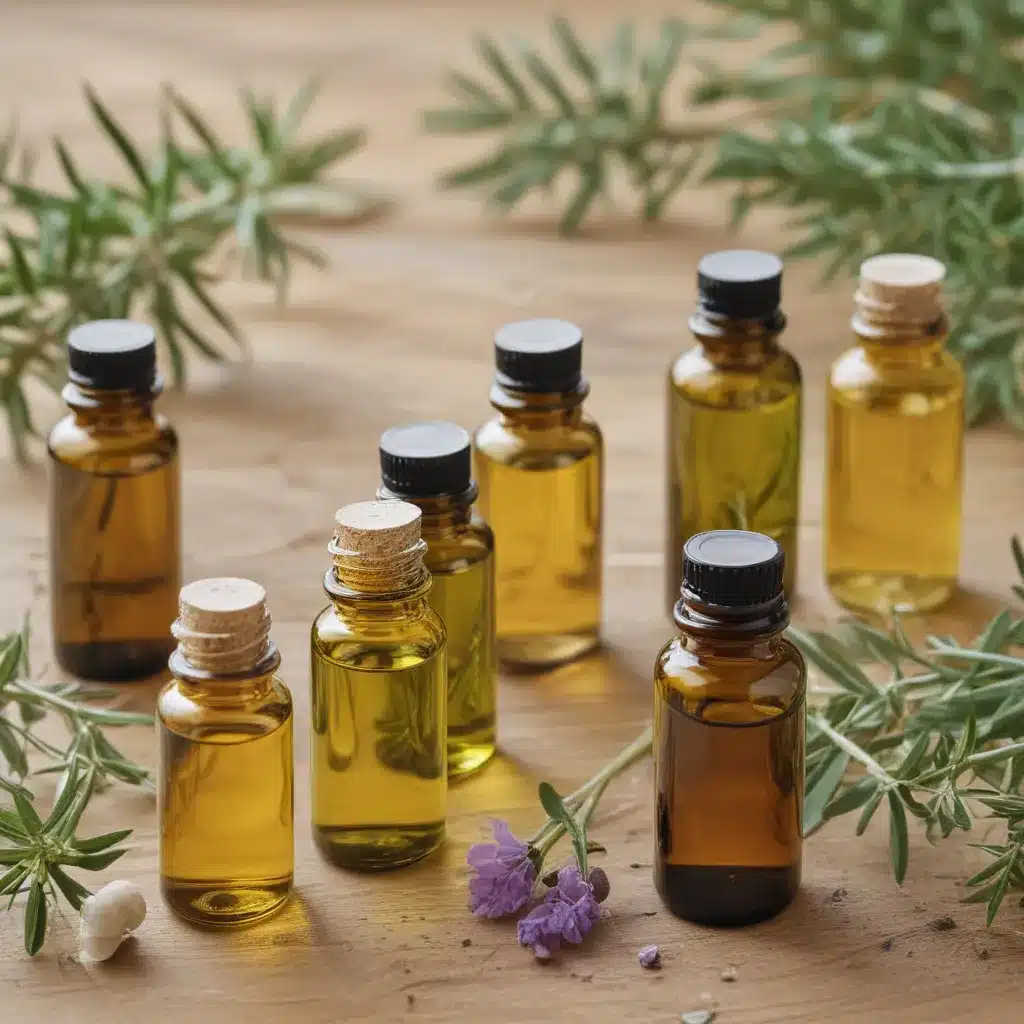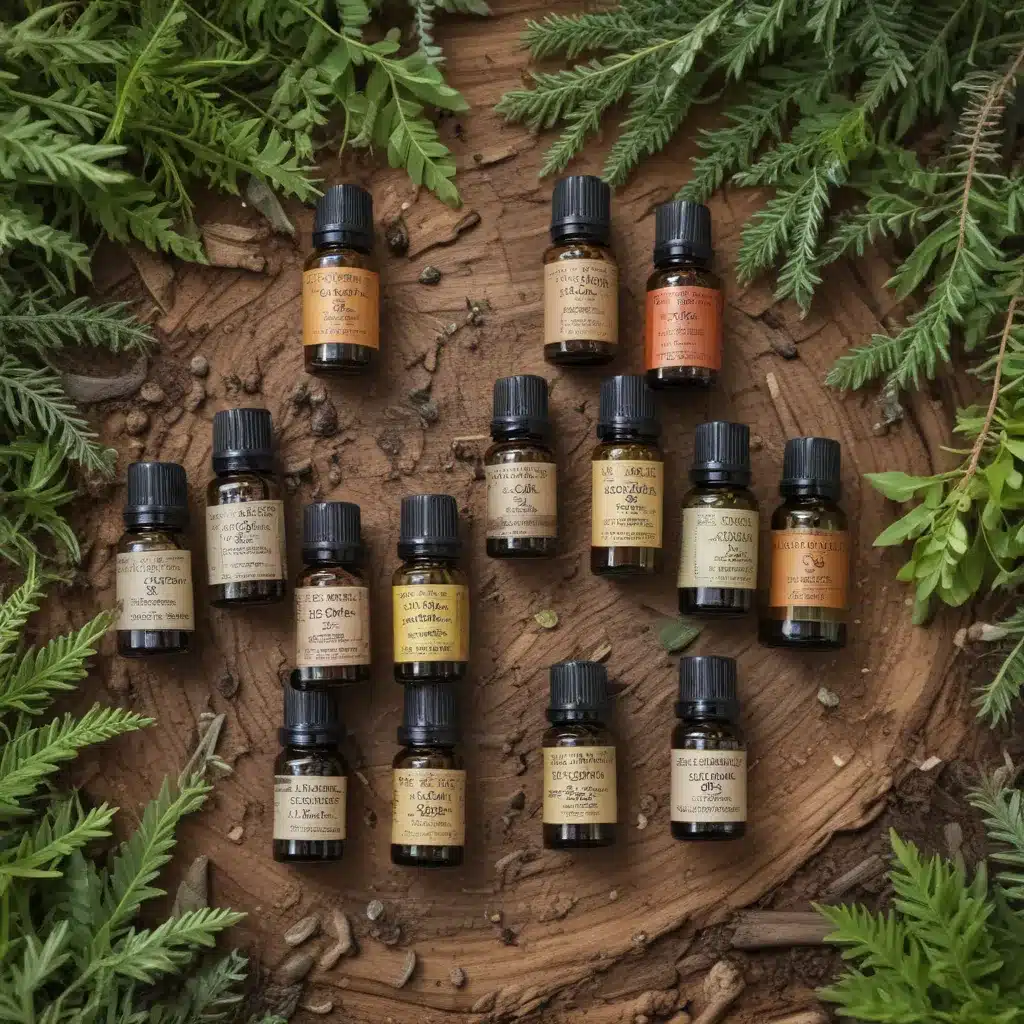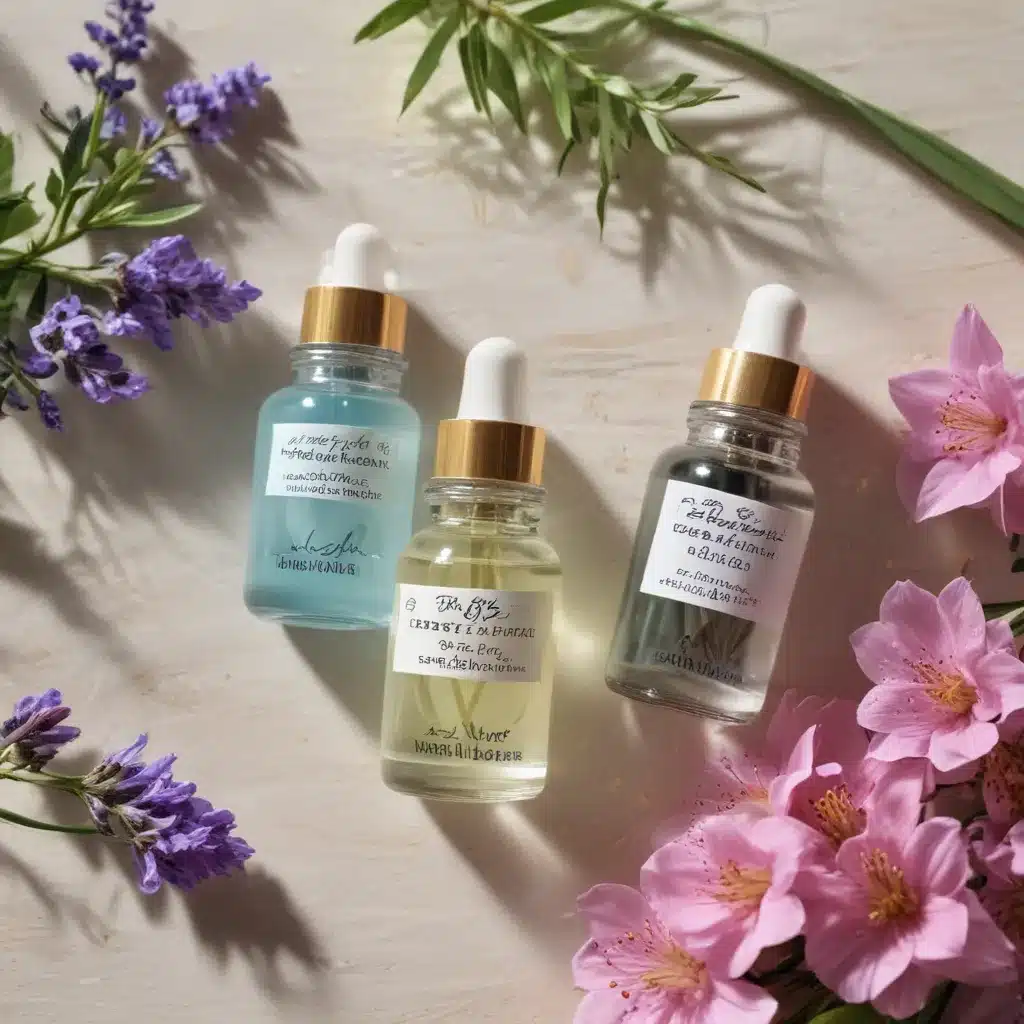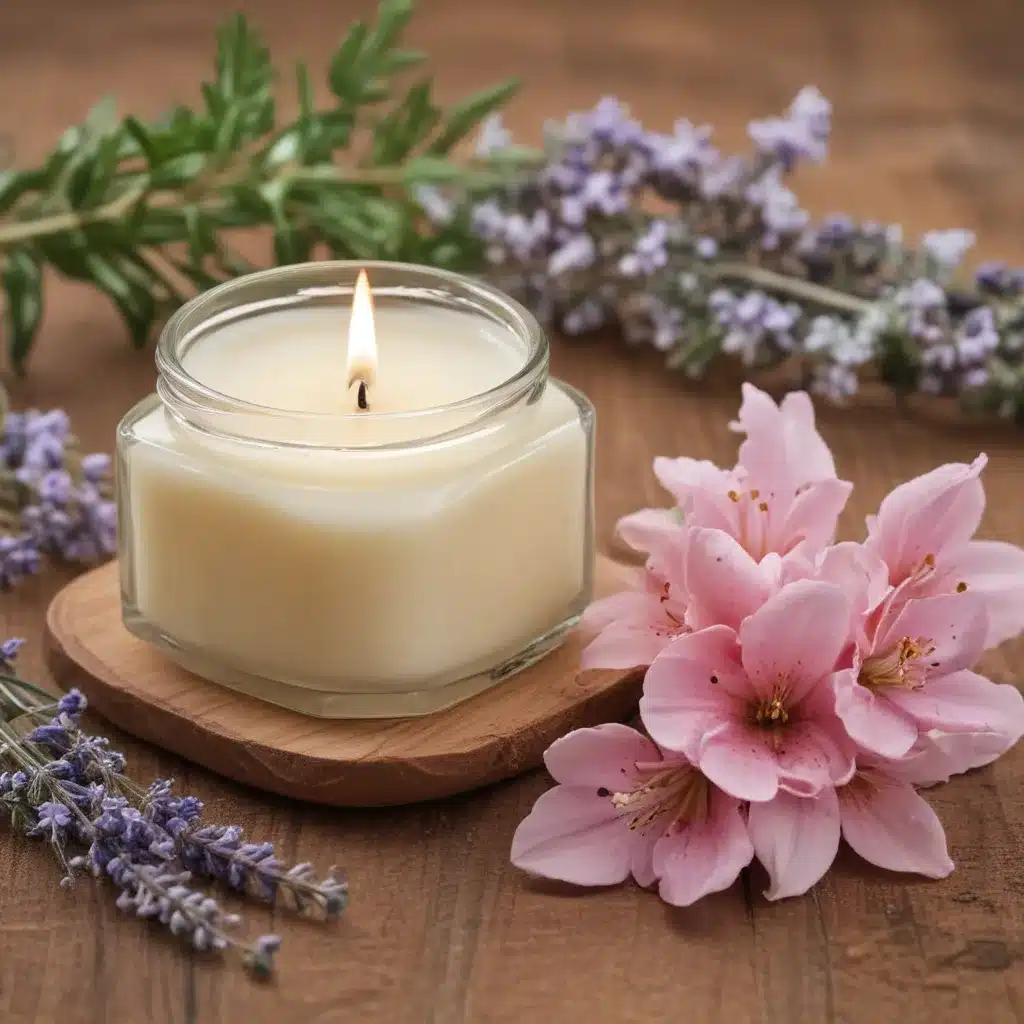
As the saying goes, “Sometimes the cure for headaches is hiding in the most unexpected places.” Have you ever wondered how essential oils could offer relief for those pounding headaches and debilitating migraines? The subtle power of these plant extracts might just surprise you with their therapeutic effects. Let’s explore the science behind how these oils can provide a natural solution to alleviate your head woes and potentially transform your approach to managing these common ailments.
Understanding Essential Oils
Understanding essential oils can be simplified by recognizing their natural aromatic compounds and important therapeutic properties. These oils are concentrated extracts derived from plants, known for their distinct aromas and various health benefits. When it comes to headaches and migraines, essential oils offer a natural alternative to traditional medicine, providing relief through aromatherapy benefits and targeted blends.
Aromatherapy benefits play a critical role in utilizing essential oils for headache relief. The inhalation of these aromatic compounds can trigger responses in the brain that help alleviate headache symptoms. By using essential oil diffusers, these scents can be dispersed effectively throughout a room, creating a calming atmosphere that promotes relaxation and eases headache discomfort. Additionally, specific essential oil blends have been formulated to target headaches, combining oils with complementary properties to enhance their effectiveness.
Inhalation techniques are key to maximizing the therapeutic effects of essential oils. Whether through direct inhalation from the bottle, using a diffuser, or adding a few drops to a bowl of steaming water, inhaling essential oils allows their beneficial compounds to enter the body efficiently. This method enables the quick absorption of the oils into the bloodstream, providing fast-acting relief for headaches and migraines. By incorporating these inhalation techniques into your wellness routine, you can harness the power of essential oils to manage headache symptoms effectively.
Types of Headaches
When it comes to headaches, understanding the different types is important. Headache triggers can vary from person to person, influencing the type of headache experienced. Recognizing migraine symptoms is essential for proper treatment and management of this debilitating condition.
Headache Triggers
Headache triggers, also known as types of headaches, can vary widely among individuals, often influenced by factors such as stress, diet, and sleep patterns. Stress management plays an important role in headache prevention, as high stress levels can trigger tension headaches. Additionally, dietary triggers like caffeine withdrawal or certain food additives can lead to headaches. To better understand the diverse headache triggers, let’s look at a breakdown in the table below:
| Type of Headache | Common Triggers |
|---|---|
| Tension Headache | Stress, poor posture |
| Migraine | Certain foods, lack of sleep |
| Cluster Headache | Alcohol, strong smells |
| Sinus Headache | Allergens, weather changes |
Migraine Symptoms
Moving from the discussion on headache triggers, it’s important to highlight the distinct symptoms associated with migraines, a type of headache. Migraine triggers can vary from person to person, but common ones include stress, hormonal changes, certain foods, and environmental factors. Symptoms of migraines often go beyond a typical headache and can include intense throbbing pain, sensitivity to light and sound, nausea, and even visual disturbances known as auras. When it comes to headache relief and treatment, managing triggers is vital. This can involve lifestyle changes, stress reduction techniques, identifying and avoiding trigger foods, staying hydrated, and getting regular exercise. In severe cases, medication prescribed by a healthcare provider may be necessary to alleviate symptoms and prevent migraines.
Benefits of Aromatherapy
Utilizing aromatherapy can provide a range of benefits for both physical and emotional well-being. When it comes to aromatherapy benefits and stress relief, here are some key points to take into account:
-
Holistic Wellness: Aromatherapy offers a holistic approach to well-being, targeting both the body and mind simultaneously. Essential oil blends can help alleviate physical symptoms like headaches while also promoting emotional balance and relaxation.
-
Stress Relief: One of the most significant advantages of aromatherapy is its ability to reduce stress levels. Inhaling certain essential oils triggers the brain to release neurotransmitters that promote relaxation and decrease feelings of anxiety.
-
Enhanced Relaxation Techniques: Incorporating aromatherapy into relaxation techniques can amplify their effectiveness. Whether you’re practicing yoga, meditation, or simply unwinding after a long day, diffusing calming essential oils can create a soothing environment that enhances your relaxation experience.
Causes of Migraines
Aromatherapy’s impact on migraine sufferers extends beyond relaxation techniques, as understanding the causes of migraines is essential for effective management. Migraines can have various triggers, with common ones including stress, hormonal changes, certain foods like aged cheeses or processed meats, lack of sleep, bright lights, strong smells, and even weather changes. These triggers can vary from person to person, making it important for individuals to identify their specific triggers to better manage and prevent migraines.
Recognizing the symptoms of migraines is also important. Symptoms can range from intense throbbing or pulsing pain on one side of the head to nausea, vomiting, and heightened sensitivity to light and sound. Some individuals may also experience aura, which involves visual disturbances like flashing lights or zig-zag lines before the onset of a migraine. Understanding these symptoms can aid in early detection and prompt treatment.
Topical Application Techniques
When using essential oils for headaches, it’s important to know the proper dilution ratios to guarantee safety and effectiveness. Targeting specific acupressure points can enhance the oils’ benefits and alleviate headache symptoms. Incorporating gentle massage techniques can further boost the oils’ efficacy in providing relief.
Proper Dilution Ratios
Proper dilution ratios are essential when utilizing essential oils for topical application to alleviate headaches and migraines. When considering dilution techniques, safety should always be the top priority to prevent skin irritation or adverse reactions. Proper application methods guarantee that the essential oils are effectively absorbed, maximizing their benefits in providing relief. Here are key points to keep in mind:
- Start with a low concentration: Begin with a lower dilution ratio and adjust as needed to suit individual sensitivity.
- Use carrier oils: Mixing essential oils with carrier oils like coconut or almond oil helps dilute the potency for safer application.
- Patch test: Before widespread application, perform a patch test on a small area to check for any allergic reactions.
Targeted Acupressure Points
Exploring the most effective acupressure points for targeted application can enhance the efficacy of essential oils in alleviating headaches and migraines. Acupressure points are specific areas on the body that, when stimulated, can help relieve pain and promote relaxation. When using essential oils in conjunction with acupressure, it’s important to identify the key points that correspond to headache relief. Some commonly targeted acupressure points for headaches include LI-4 (Hegu), located between the thumb and index finger, and GB-20 (Feng Chi), found at the base of the skull. By applying essential oils to these acupressure points, you can amplify the natural remedies’ effectiveness in combating headaches and migraines, providing soothing relief in a holistic manner.
Gentle Massage Techniques
To enhance the effectiveness of essential oils in alleviating headaches and migraines, incorporating gentle massage techniques can provide targeted relief when applied topically. When using essential oils for headaches, I find that focusing on specific pressure points and utilizing scalp techniques can amplify the soothing benefits. Here are some gentle massage techniques that I recommend:
- Pressure Points: Gently massage the temples in a circular motion or apply light pressure to the area between the eyebrows.
- Scalp Techniques: Use your fingertips to massage the scalp in small circular motions, paying particular attention to the base of the skull.
- Neck Massage: Applying gentle pressure to the base of the skull and the neck can help release tension and promote relaxation.
Lavender Oil for Headaches
When dealing with headaches, lavender oil has shown promising results in providing relief. Lavender’s calming aroma and potential therapeutic properties make it a popular choice for alleviating headache symptoms through aromatherapy. Research on lavender oil blends indicates their efficacy in headache relief. Below is a table summarizing the aromatherapy benefits of lavender and key findings from lavender research:
| Aromatherapy Benefits | Lavender Research | Headache Relief |
|---|---|---|
| Reduces stress and anxiety | Studies show lavender oil may help reduce headache intensity and frequency | Lavender oil blends can be effective in easing headache symptoms |
| Promotes relaxation | Research suggests inhalation of lavender oil can provide relief from migraines | The soothing scent of lavender may help alleviate tension headaches |
| Improves sleep quality | Lavender aromatherapy has been linked to improved sleep patterns | Incorporating lavender oil into a massage oil can aid in headache relief |
Peppermint Oil for Migraines
I find that peppermint oil offers cooling relief and has soothing properties that can be beneficial for migraines. The invigorating sensation it provides can help alleviate the intensity of migraine symptoms. Applying a diluted solution of peppermint oil to the temples or neck may offer some relief during a migraine episode.
Cooling Relief for Migraines
Peppermint oil offers a cooling relief for migraines, providing a soothing sensation that can help alleviate the discomfort associated with this debilitating condition. When a migraine strikes, I turn to peppermint oil for its calming effects. Here are some ways peppermint oil can help ease migraine symptoms:
- Apply a diluted mixture to the temples for a rejuvenating sensation.
- Inhale the aroma by adding a few drops to a diffuser to promote relaxation.
- Mix with a carrier oil and massage onto the neck and shoulders for a cooling effect.
These simple techniques can be part of my self-care routine, offering a natural and comforting way to manage migraines.
Peppermint’s Soothing Properties
Seeking relief from migraine discomfort, the calming properties of peppermint oil become a valuable natural remedy. Peppermint essential oil, known for its invigorating sensation, can help alleviate headache symptoms. This versatile oil can be used in various ways, from creating peppermint recipes to diffusing it in your living space for a soothing effect. Peppermint essential oil blends offer a revitalizing aroma that can uplift your mood and ease migraine tension. The benefits of peppermint oil extend beyond just its pleasant scent; its analgesic and anti-inflammatory properties make it a popular choice for headache relief. Incorporating peppermint into your wellness routine through diffusers or topical application can provide soothing relief during migraine episodes.
| Peppermint Recipes | Peppermint Essential Oil Blends | Peppermint Benefits |
|---|---|---|
| Peppermint tea | Peppermint and lavender blend | Relieves headache pain |
| Peppermint smoothie | Peppermint and eucalyptus blend | Reduces inflammation |
| Peppermint chocolates | Peppermint and lemon blend | Soothes nausea |
Eucalyptus Oil Benefits
When exploring the benefits of eucalyptus oil, one may find its soothing properties particularly effective for alleviating headache and migraine symptoms. Eucalyptus oil offers a range of benefits beyond its invigorating scent. Here are some key advantages of using eucalyptus oil:
-
Sinus Congestion Relief: Eucalyptus oil is known for its ability to help clear sinus congestion. When used in aromatherapy or as a topical ointment, it can open up the nasal passages and promote easier breathing, providing relief from congestion associated with headaches.
-
Respiratory Health Support: The inhalation of eucalyptus oil vapors can be beneficial for respiratory health. Its anti-inflammatory and decongestant properties make it a popular choice for easing respiratory conditions, such as asthma or bronchitis, which can sometimes trigger migraines.
-
Mood Enhancement: Apart from its physical benefits, eucalyptus oil can also contribute to an overall sense of well-being. Its invigorating aroma is believed to help uplift mood and reduce stress, which can be particularly beneficial for those suffering from migraines triggered by tension or anxiety.
These benefits make eucalyptus oil a versatile and effective option for managing headache and migraine symptoms, especially when looking for natural remedies that offer both physical and emotional relief.
Tea Tree Oil Soothing Effects
Tea tree oil offers soothing effects that can provide relief for various skin conditions and minor irritations. This essential oil is renowned for its antibacterial and anti-inflammatory properties, making it a versatile option for skincare benefits. When applied topically, tea tree oil can help alleviate acne, eczema, and psoriasis due to its ability to combat bacteria and reduce inflammation. Its natural antiseptic properties also make it effective in treating minor cuts, scrapes, and insect bites, promoting faster healing.
One of the key tea tree oil benefits is its ability to unclog pores and reduce oiliness, making it a popular choice for individuals with oily or acne-prone skin. Its gentle nature makes it suitable for most skin types, providing a calming effect without causing irritation. Incorporating tea tree oil into your skincare routine can help maintain clear and healthy skin, thanks to its purifying and soothing effects.
In addition to its skincare benefits, tea tree oil can also be used to relieve scalp conditions like dandruff and dryness. By adding a few drops of tea tree oil to your shampoo or mixing it with a carrier oil for a scalp massage, you can harness its antibacterial properties to promote scalp health and combat flakiness. Overall, tea tree oil’s soothing effects make it a valuable addition to your skincare and hair care routines.
Rosemary Oil for Headache Relief
I’ll highlight the aromatic benefits of rosemary and share effective application techniques to utilize its headache-relieving properties. Let’s explore how rosemary oil can offer a soothing and calming effect for headaches. Discover the simple yet powerful ways to harness the potential of rosemary oil for relief from headaches.
Aromatic Benefits of Rosemary
Rosemary essential oil offers aromatic benefits that can provide relief for headaches and migraines. When using rosemary infusion or invigorating blends, the soothing scent can help alleviate tension and promote relaxation. Here are a few ways rosemary oil can benefit those experiencing headaches:
- Calming Effect: Inhaling rosemary oil can have a calming effect on the mind and body, reducing stress and anxiety levels.
- Improved Focus: The invigorating aroma of rosemary can enhance mental clarity and focus, making it easier to concentrate and think clearly.
- Headache Relief: The analgesic properties of rosemary oil may help alleviate headache symptoms when massaged onto the temples or added to a diffuser.
Experience the natural relief that rosemary oil can provide for your headaches.
Application Techniques for Rosemary
To effectively utilize rosemary oil for headache relief, consider employing specific application techniques that maximize its therapeutic benefits. Rosemary inhalation can be achieved by adding a few drops of the oil to a bowl of hot water, covering your head with a towel, and inhaling the steam deeply. This method can help clear your sinuses and relieve headache symptoms. For a relaxing experience, try a scalp massage using diluted rosemary oil. Gently massaging the oil into your scalp can promote relaxation and alleviate tension. Alternatively, you can create a rosemary steam by adding a few drops of the oil to a bowl of hot water and placing a towel over your head to trap the steam. For a more localized approach, consider applying a forehead compress with diluted rosemary oil to target headache pain directly.
Chamomile Oil Benefits
Chamomile oil offers numerous benefits for alleviating headaches and migraines, making it a popular choice among those seeking natural remedies. When it comes to aromatherapy benefits, chamomile oil stands out for its calming and soothing properties. Here are some key advantages of using chamomile oil for headaches and migraines:
-
Reduces Inflammation: Chamomile oil blends contain anti-inflammatory properties that can help reduce inflammation in the body, which is often a cause of headache pain.
-
Promotes Relaxation: The soothing aroma of chamomile oil has a calming effect on the mind and body, helping to reduce stress and tension that can trigger headaches.
-
Improves Sleep Quality: Using chamomile oil before bedtime can promote better sleep quality, which is essential for preventing migraines triggered by lack of sleep.
Incorporating chamomile oil into your headache relief routine through aromatherapy or topical application can provide a natural and gentle way to manage headache and migraine symptoms. Its pleasant scent and powerful properties make it a valuable addition to your wellness toolkit.
Frankincense Oil for Migraines
When considering natural remedies for managing migraines, frankincense oil emerges as a promising option due to its therapeutic properties and historical significance. Frankincense, known for its calming and anti-inflammatory effects, can be a valuable tool in alleviating migraine symptoms.
Frankincense applications for migraine relief involve diluting the oil with a carrier oil such as coconut or almond oil and applying it to the temples or the back of the neck. The soothing aroma and potential analgesic properties of frankincense can help reduce headache intensity and frequency. Additionally, inhaling the scent of frankincense oil through a diffuser or by simply taking a few deep breaths with a drop of oil on your palms may provide relaxation and relief during a migraine episode.
This ancient remedy has been used for centuries in various cultures for its medicinal properties, making it a trusted option for those seeking natural migraine relief. Remember to perform a patch test before applying frankincense oil to confirm you don’t have any allergic reactions. As with any alternative treatment, consulting with a healthcare provider to determine if frankincense oil is a suitable addition to your migraine management plan is important.
Lemon Oil for Headaches
Exploring another aromatic option for alleviating headaches, lemon oil is a citrus-scented remedy that shows promise in providing relief from head pain. The bright and revitalizing scent of lemon oil can offer a rejuvenating approach to managing headaches through aromatherapy remedies. Here are some ways in which lemon oil can help alleviate headaches:
-
Citrus Infusion: Lemon oil’s citrusy aroma can help uplift the mood and ease tension, which are common triggers for headaches. Inhaling the fresh scent of lemon oil may promote relaxation and reduce stress levels, potentially relieving headache symptoms.
-
Aromatherapy Remedies: Incorporating lemon oil into your aromatherapy routine can be a soothing way to address headaches. Whether diffused in the air, added to a relaxing bath, or used in a massage oil, lemon oil’s aromatic properties can contribute to a sense of calm and well-being.
-
Natural Headache Relief: Lemon oil is known for its natural analgesic and anti-inflammatory properties. When applied topically or inhaled, it may help alleviate headache pain and reduce the intensity and frequency of headaches over time.
Lemon oil’s fresh and vibrant fragrance not only provides a pleasant sensory experience but also offers potential benefits in managing headaches through aromatherapy practices.
Safety Precautions and Tips
Incorporate safety precautions and tips when using lemon oil for headache relief to guarantee a positive and effective aromatherapy experience. When working with essential oils like lemon oil, it’s important to remember that these concentrated plant extracts can be potent and should be handled with care. Before applying lemon oil topically for headache relief, it is advisable to perform a patch test on a small area of skin to check for any adverse reactions. This simple step can help prevent potential skin irritation or sensitivities.
Additionally, it’s vital to dilute lemon oil with a carrier oil like coconut or almond oil before applying it to the skin. The general rule of thumb is to mix about 2-3 drops of lemon oil with 1 tablespoon of carrier oil to ensure proper dilution. When using lemon oil for headache relief through inhalation, a few drops in a diffuser or a bowl of steaming water can help disperse the aroma effectively.
To maximize the benefits of lemon oil for headaches, consider blending it with other essential oils like peppermint or lavender, known for their soothing properties. Remember to store essential oils in a cool, dark place away from direct sunlight and out of reach of children and pets. By following these safety precautions and tips, you can enjoy the benefits of lemon oil for headache relief safely and effectively.
Conclusion
To sum up, essential oils can provide much-needed relief for headaches and migraines. Remember, ‘where there’s a will, there’s a way.’ By incorporating aromatherapy into your wellness routine, you can find natural, soothing solutions for your pain. Be sure to consult with a healthcare professional before using essential oils, and always practice safe application methods. Take control of your health and embrace the power of nature’s remedies.





















